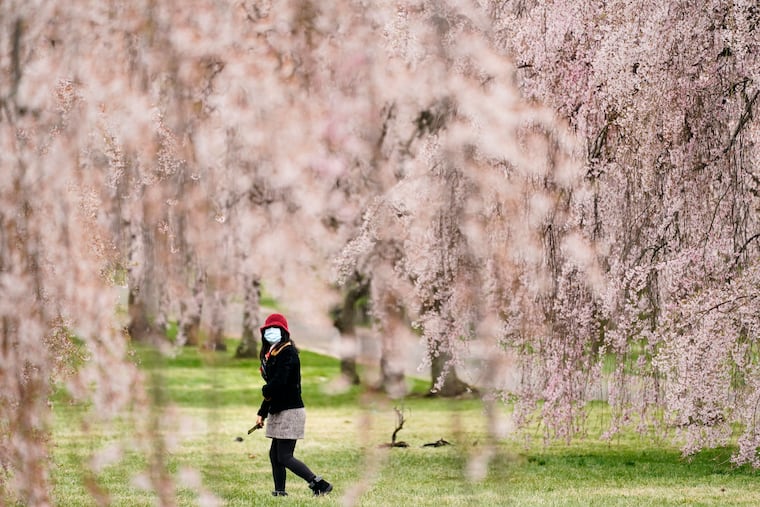Philly asks residents what they think of trees for city’s 10-year ‘urban forest’ plan
Philadelphia is asking residents to take an online survey as part of a plan to grow what it calls its "urban forest" with the ultimate goal of growing the canopy throughout the city.

Maybe you think trees are beautiful. Or a hassle. Philly wants to know in its first-ever survey of residents about trees.
The city has designed a 29-question survey to get a feel for how residents think about trees as part of a 10-year plan to reverse the declining tree canopy, especially in vulnerable neighborhoods. The Philly Tree Plan is being drafted this year with the goal of growing what organizers call the “urban forest,” or the collection of trees in the city.
The survey, which gives residents a chance to win a $50 gift card, is the start of public outreach to help craft the overall plan for the planting and care of the urban tree canopy.
“Trees can be a source of joy for residents. They can also be a source of stress. We encourage all Philadelphia residents to join the conversation, whether they have a lot to say or just a few words, good experiences with trees or complicated relationships with trees,” said Erica Smith Fichman, Philadelphia Parks & Recreation’s community forestry manager. “Trees play a huge role in our lives, so for this plan to be impactful, it must take into account the diverse views of residents and community leaders.”
The survey takes less than 10 minutes to complete. It can be done anonymously, but residents have the option of including more detailed information for the chance to win the gift card. The survey is translated into multiple languages including English, Spanish, Chinese, Vietnamese, Russian, Korean, Portuguese, Khmer, and Burmese.
The survey drills down on core beliefs about trees and their value not only to individuals but to cultures.
It asks respondents if they have ever planted, pruned, mulched, or even harvested fruit from trees. It asks whether people believe trees contribute to the city’s overall character, provide shade, or increase property values. It asks if residents ever wanted a tree removed, or if trees have caused conflicts with neighbors.
At times, it even informs, letting residents know that property owners are responsible for the trees on the street and any damage they might cause. But, it notes that the city will remove dead, diseased, or hazardous trees and even prune those that pose a problem.
Officials also created questions to gauge support for a low-cost insurance program to cover tree-related damage to sidewalks and utilities, or whether there’s an appetite for more funding to increase response time for requests for removal and pruning.
“Trees are vital to our health, happiness, and quality of life,” said Parks & Recreation Commissioner Kathryn Ott Lovell. “They help keep our air cleaner, and make our neighborhoods stronger and more beautiful. The Philly Tree Plan will set us on the path to bringing the benefits of trees to communities that need them most.”
Last year, the city hired the landscape architecture firm Hinge Collective to design an urban forest plan that would both beautify and also reduce heat in some of the more shade-challenged areas of the city. Most of these are in the poorer, more vulnerable neighborhoods, so the plan aims to improve health conditions in places that need it most.
» READ MORE: Philly hires Center City landscape firm to create urban forestry plan
Officials in the Philly Tree Plan program also created a photography challenge that asks residents to share stories about trees they have a connection with through the #PhillyTreeStories hashtag on social media. There is a first-place prize of $200 and two tickets to the Philadelphia Flower Show.
They have also set up an online virtual tour that explains the urban forest, its benefits, and the downside for areas with few trees, such as a 20-degree difference in temperatures on the hottest days compared with neighborhoods with more shade. Those neighborhoods with fewer trees tend to be in economically vulnerable neighborhoods with higher populations of Black and Latino residents.
Officials said public engagement will continue through mid-June. A draft of the Philly Tree Plan will be made public in September.